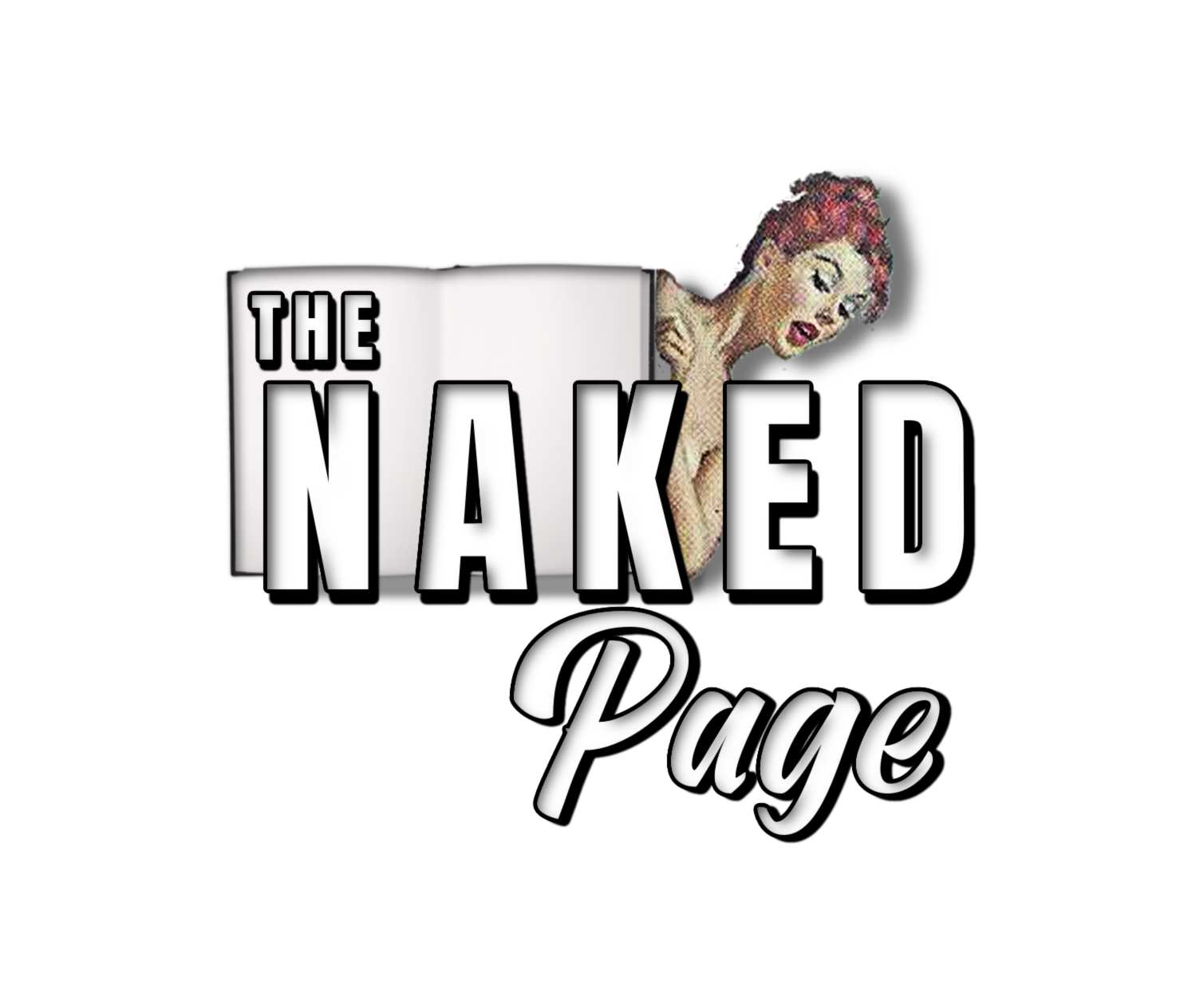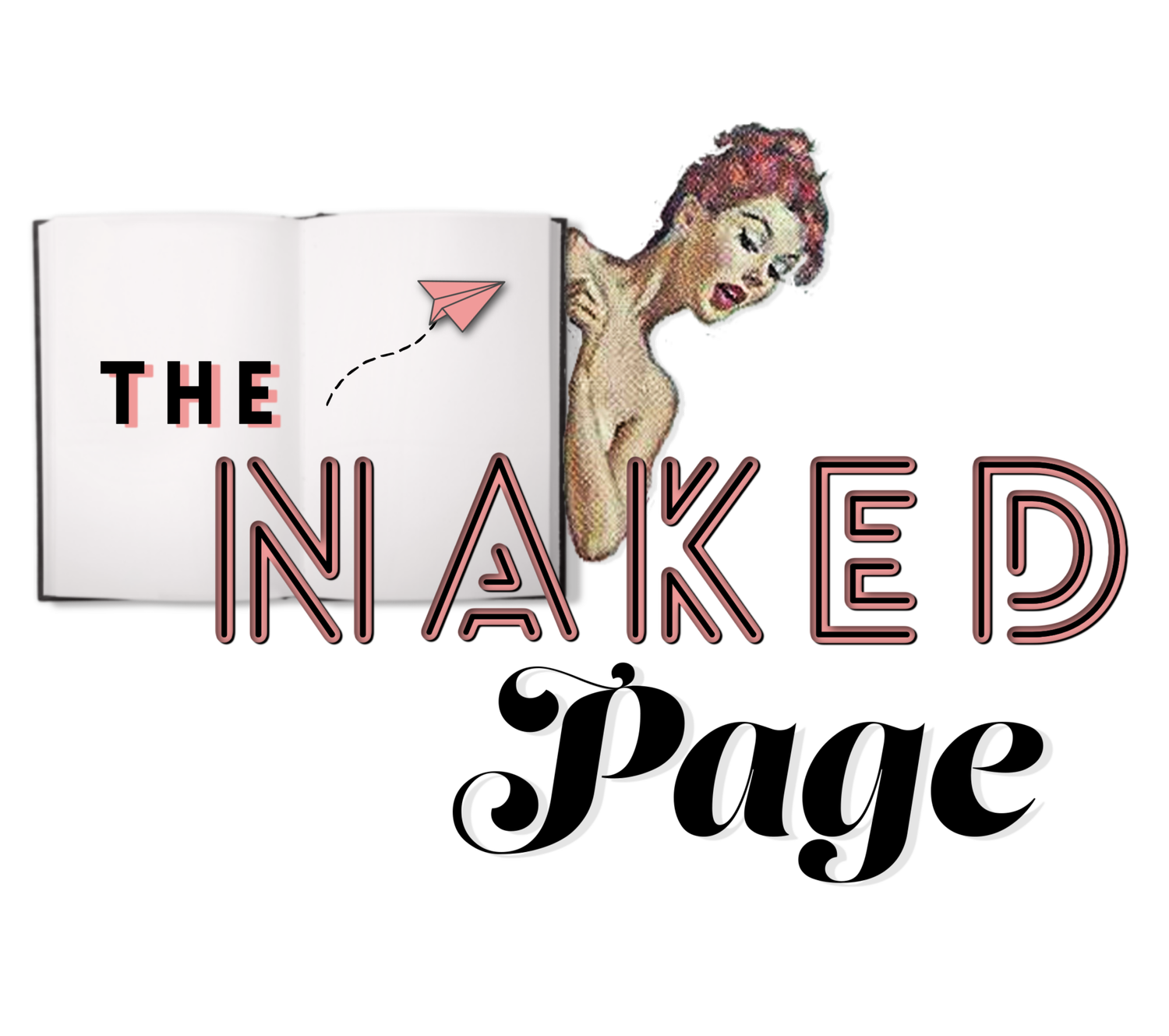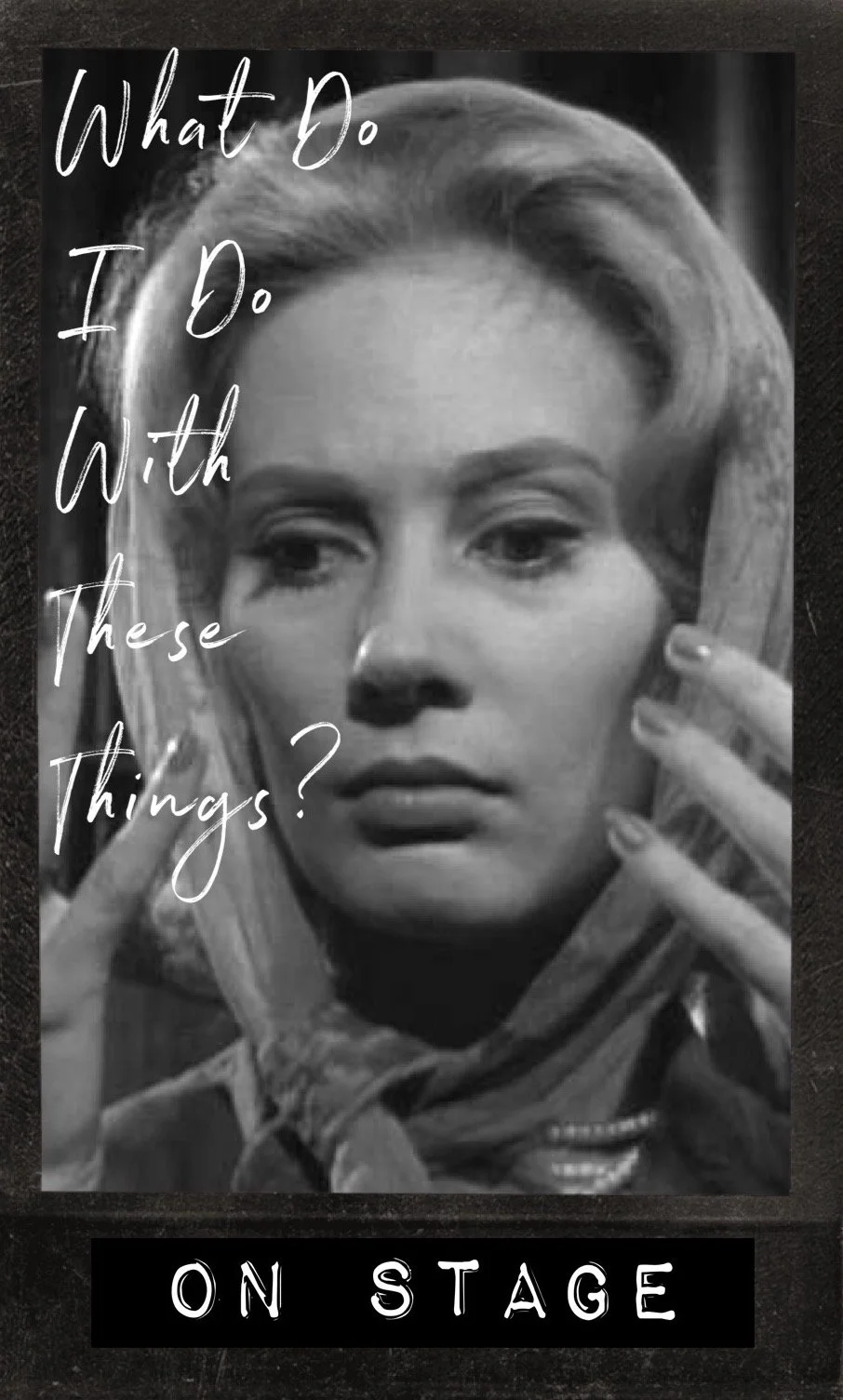The Naked Stage: Presenting Your Writing
Anxiety is the baked-on crap stuck to your kitchen pans that never goes away.
Fear has paralyzed my public life on far too many occasions. I’d rather write words than present them on stage. But I’m also a weirdo. A face-your-fear-and-do-it-anyway kind of weirdo. And that comes after being an if-you-call-on-me-in-class-I-will-pass-out kind of weirdo.
Considering I was always prone to panic attacks, I did the unthinkable.
I got a B.A. in Theatre and Performance Studies. A degree I sought out specifically to deal with my anxiety. Tortuous at times, it gave me skills that I used as a high school English teacher, a burlesque performer, and a flight attendant. Speaking in front of people still makes me nauseous. But now nobody notices if I’m on the verge of throwing up.
Truth.
Anxiety has never left me. I’ve learned to talk her down from the ledge. Still, she’s always at my side. But when met with an audience, I have the tools to override my knee-knocking, star-seeing, palms-sweating, petrified freak-outs.
Believe me when I say public speaking is a learned skill.
Whether you’re an anxious author who’s about to present a Ted Talk or giving a poetry reading for three people at your local library, you need to keep from passing out in public. Anxiety and public speaking are not mutually exclusive. You can build a safety net that will keep you from freezing up on stage.
I’m not talking about positive thinking here. Chant mantras all you like BEFORE showtime, but when you’re in the spotlight you need specific tactics to keep you from collapsing.
Here are 8 quick and dirty tips for preventing presentation fallout:
1. Walk Through It
Go to rehearsal times, so you’ll know how the stage or presentation space will be arranged. You need to know what you’ll be walking into, literally. If a rehearsal isn’t included, ask the organizers if you can schedule a quick walkthrough. Make some notes. Then run it again and again in your head, visualizing the layout.
2. Prop Yourself Up
Incorporate a pen, a laser pointer, or a stack of notecards into your presentation so your hands will have something to manipulate. We handle things daily. Think keys, rubber bands, paperclips, the mail, and kitchen utensils. We point with them, sing into them, we use them as an extension of ourselves. So why stand on stage empty-handed?
My theatre professor couldn’t understand why during a play when an actor’s hat fell off his head, the entire cast stepped over it for the rest of the show.
“Why?” he asked, “In real life, you’d just reach down, pick it up, and hold it.”
Props can give you something to hold onto and be a place to put your anxiety.
3. Get Wet
Demand water. Say you must have it for health reasons. You’ll thank me when you realize how parched all that adrenaline makes you. In fact, you can even script in sips to function as beats to break up your words. In the few seconds you’re drinking, sloooooow waaaaaaayyyy doooooown. Tell yourself to breathe. You’re probably talking much faster than you think.
I would suggest a water bottle over a glass. Screw that cap back on and now you have a pointer to add emphasis to your words.
4. Pocket It
Wear pants with pockets. Stick a few small objects like glass beads or pieces of hard candy in both sides that you can grab. Tig Notaro, the comic, sticks her hands in her pockets often. It was probably once a security thing and has now become a signature thing.
But remember your movement gives your audience something to watch. You aren’t just a talking head or doing audio for a podcast. You can fill up the space with your presence and move around if it helps you. Pockets are only the beginning. When you’re ready unleash those hands and move them a bit.
5. Stool Pigeon
Wonder why every comedian in the world stands at a microphone next to a stool? You can sit, lean, stretch, balance, use it to hold props or battle tigers with it. Entire acts develop around these three-legged things.
But if you’re a nervous wreck, grab a stool and just sit the f* down. You’ll ground your jitters. And hopefully not fall over.
Performing seated isn’t cheating, either. Sitting can create a conversational tone for your audience. It’s a style that tells them “pull up a chair, we’re going to get intimate.”
6. Make ‘Em Laugh
Be honest. Tell a story. Use humor.
Open with something like: “Hey y’all when I get nervous, I’m really awkward. I bet you didn’t even notice (as you fumble).” Of course, they noticed, but now they know you know they know. It’s not a secret that being on stage is a horrifying event, so bring your audience along for the ride. Own your idiosyncrasies and laugh at yourself. People will relate to your authenticity and want to see you succeed.
7. Give Yourself Double Vision
Do you wear glasses or contacts? Don’t. The less you make eye contact, the more comfortable you’ll feel. But you must look up. You know they’re out there, but you can’t see their furrowed brows, so who cares.
My eyes used to get crazy dry when I was a flight attendant, so I had to stop wearing contacts. I soon realized that without my contacts I could present my safety demo and couldn’t really make out the expression on anyone’s face. In other words, I was no longer self-conscious of people laughing at me. It helped to relieve my jitters.
** If your vision impairments are severe, don’t try this one on stage. Only do this if, like me, you are gradually going nearsighted.
Pick either a fuzzy shape or a real human and look at the point just above their head. From their perspective, it looks like you are making eye contact, but the reality is you’re looking just beyond them.
8. Use A Plant
No, I’m not advocating you bring in a hydrangea bush you can hide behind. Bring a friend or a significant other. Give them a job. Ask them a question and make them part of the show. Keep them on book so they know your lines and can mouth a word or two if you get lost or stuck. Or hold a prop for you that you’ll need to retrieve in the middle of your presentation.
Having that one familiar person in the audience can pep up your demeanor, which will appeal to the entire crowd. They can also help you with reminders, resources, and anything that you need to hold onto for your presentation.
No Matter What
None of these tips replace long-term experience with public speaking. But early on you must get on your platform and give yourself permission to make mistakes. Some of my best performances happened when things didn’t go as planned. Like that time a projector screen fell on my head while teaching my HS juniors The Crucible. I screamed SHIT! The kids loved my four-letter foible and I had an engaged audience for the rest of the school year.
When you react to your current reality, you look like a human instead of like Despicable Me’s Agnes giving her zombie reading of that Mother’s Day poem. Just like with writing, your goals are to 1) not pass out and 2) connect with your audience.
What are some techniques you use to control your anxiety when public speaking or networking?


